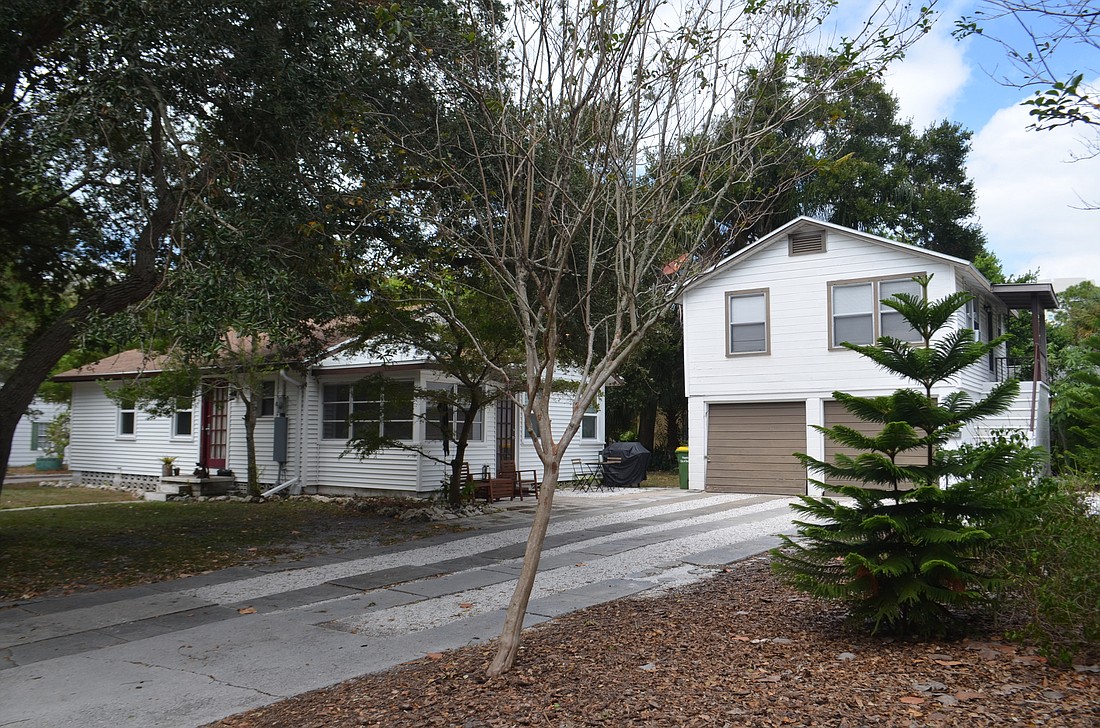- February 24, 2026
-
-
Loading

Loading

A majority of the City Commission has expressed support for an ordinance that would allow accessory dwelling units on single-family properties throughout Sarasota, though not on the barrier islands.
In a 4-1 vote on Feb. 17, the commission directed staff to revise a proposal that would have allowed accessory dwelling units by-right in five neighborhoods. Although staff initially limited its focus on neighborhoods that expressed support for accessory dwellings, the board believed broadening the regulations would aid in the city’s pursuit of more affordable housing.
City planning staff said the proposal to allow accessory dwellings dates back to the 2018 Blueprint for Workforce Housing, a report the city commissioned from the Florida Housing Coalition. The report identified accessory dwellings as a tool to increase the supply of housing in a city primarily zoned for single-family homes. The reduced size of the accessory units would help encourage affordability, with young professionals and retirees among the target demographics.
In September, Planning Director Steve Cover said staff limited the scope in hopes of winning the commission’s approval and slowly building community support. At the Feb. 17 meeting, however, four of the five commissioners saw no need to vet the proposal neighborhood by neighborhood. Mayor Hagen Brody pointed out some accessory dwellings exist in areas including Laurel Park and Gillespie Park, and he said residents have largely provided positive feedback.
“They have not caused any problems and they add to our affordable housing stock,” Brody said. “I really think that this is a situation where we have to make the decision for our community.”
Two residents of Arlington Park — which was slated for inclusion in staff’s initial proposal — spoke in opposition to the ordinance, citing issues with existing structures in the neighborhood and expressing concerns about the city’s ability to regulate accessory dwellings.
Commissioner Jen Ahearn-Koch said she believed resident concerns about accessory dwellings were legitimate, and although she understood the policy basis for allowing them, she didn’t think they should be expanded into areas where residents didn’t actively support it.
“When I’ve spoken with other neighborhood leaders, they are all very concerned about how this is going to be enforced, not the intent of it,” Ahearn-Koch said. “The intent is good; I recognize and acknowledge that. It’s the abuse.”
Commissioner Liz Alpert reiterated that permitting accessory dwellings was one of the policy tools the city received as it sought guidance from housing experts. Alpert said she did not believe the concerns some residents had would lead to real-world problems.
“I take issue with the premise that just because someone builds an ADU, they are going to abuse their responsibilities as a citizen any more than any other homeowner who could decide they want to have loud parties every night or whatever is not allowed in their neighborhood,” Alpert said. “I also take issue with the premise that someone who’s renting is an undesirable person who is going to create problems for their neighbors.”
The rest of the commission expressed a similar sentiment.
“It’s sort of using the same logic as, ‘Let’s not allow businesses to have outside seating because you’ll have some business owners going on the boundaries and going into the streets,’” Commissioner Erik Arroyo said. “The outlier, the exception should not dictate policy.”
City staff will bring back the revised accessory dwelling ordinance for consideration at a future meeting.